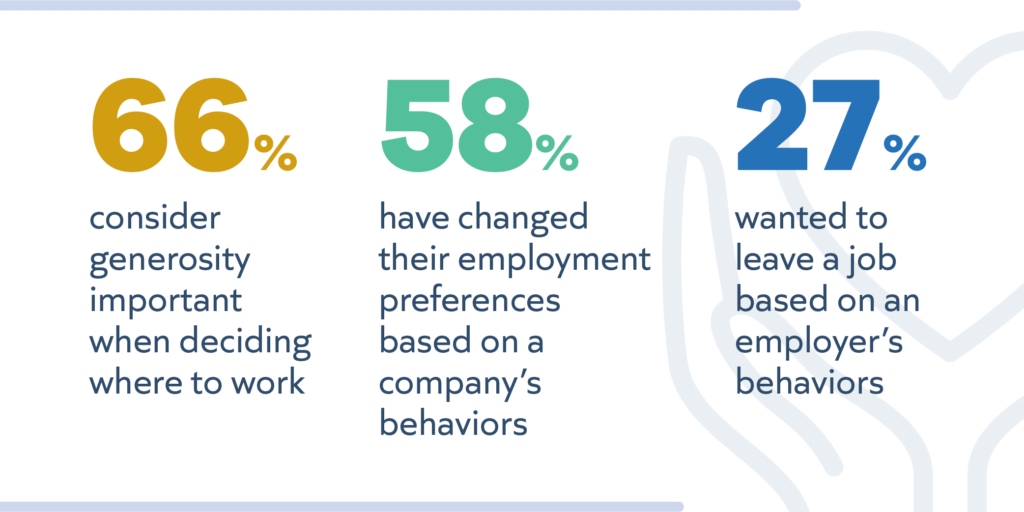The Role of Values in Winning the War for Young Talent
As pundits are breathlessly talking about the “Great Resignation” wave upon us, all across Georgia businesses are struggling to hire on pace with their economic recovery.
Businesses need to fight the war for talent on every front from recruiting to retention. The complications of talent accessibility, location, training, pay and benefits are complex, but one thing is clear from recent goBeyondProfit data – your company’s values are critically important, especially when it comes to attracting younger employees.
Our 2021 Georgia Research Report clearly shows there are many instances where younger employees believe — and act – even more strongly and frequently than their older co-workers in response to corporate generosity and values.
For example, while 75% of employees over 55 think it’s important for the businesses in their lives to demonstrate generosity and do community outreach, that number rises to 87% among younger millennials.
Of working Georgians in the 18-34 year range:

Businesses should explore shared values with current staff and new candidates to ensure a greater chance of making a hire with long-term staying power. And talk about employee and community policies with them. Company behaviors caused younger employees to change employment preferences, including having left an employer or taken one off – or added one to — their interest list.
How many of your current employees are there in body, but not spirit? Consider the potential value of igniting current employees with purpose and values.
What actions younger team members value most:
Specifically, this age group highly values:
- Equitable and inclusive culture (81%)
- Sourcing products and supplies with environmental or social benefits (77%)
- Purpose-driven culture and internal communications (76%)
- Cause marketing and external communications (68%)
- Employee volunteerism (67%)
Since the pandemic, economic and social events of 2020, 78% of millennials expect to see more generosity from the businesses in their lives. Businesses should see this as a low-cost competitive advantage for those who prioritize a generous, values-driven culture and ensure that’s clear in recruiting communications.
